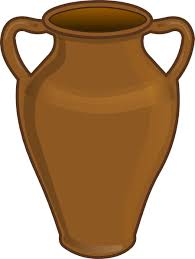John 2:1-2 – On the third day there was a wedding at Cana in Galilee, and the mother of Jesus was there. Jesus also was invited to the wedding with his disciples.
We now come to the narrative that contains the first public miracle which Jesus performed. It occurs in Cana of Galilee, which was situated about six miles outside Nazareth, on the road to Tiberias.
Isn't it interesting that Jesus did not choose Jerusalem as the site of his first public miracle? Why do you suppose that was the case?
Well, it certainly proves that Jesus was not simply seeking honor from men. If Jesus had been looking only for earthly glory, then he would have 'performed' miracles for as many spectators as possible. This would have best been accomplished in the crowded city of Jerusalem.
But miracles have nothing to do with Jesus trying to earn human honor. Miracles are acts of mercy which display the love and power of God to mankind. They are a confirmation of the gospel message. This is why we always see them in conjunction with the preaching of the word. In this particular case, the miracle confirmed the divinity of Jesus to his disciples. This allowed Jesus to earn the trust and allegiance of his apostolic team before embarking on a wider ministry. It also brought relief to the bridegroom and his family.
Later on, at the appointed time, Jesus' doctrine and miracles would spread to the city of Jerusalem. In the meantime, they began inconspicuously among the humble people of Galilee.
John further reveals that Jesus and his disciples were invited to this wedding, while Mary is described as simply 'being there'. The common belief is that the wedding was in the family of Alphaeus, whose wife was Mary's sister. This makes Mary a relative.
As a relative, Mary was no doubt assisting with the wedding. This explains why she calls on Jesus for help when the wine ran out. If she was simply a guest, the lack of wine would not have been her problem. We might be tempted to wonder why Mary didn't call upon Joseph for help. The answer is that scholars believe Mary was a widow by the time Jesus began his public ministry.
John 2:3 – When the wine ran out, the mother of Jesus said to him, "They have no wine."
This might be a good time for us to reacquaint ourselves with basic ancient Jewish wedding customs. There were actually a number of steps in the marriage process. We are only mentioning the highlights here, so if you are curious, please look for other resources on this fascinating topic.
In biblical times, marriages were arranged by the fathers of the bride and groom. The feelings or wishes of the couple were not normally taken into consideration. It was not uncommon for the couple to meet for the first time at the wedding ceremony. In some instances, the marriage contract was established when the bride and groom were still children, and held until they reached maturity. In any event, the parents would agree upon what amounted to a purchase price, and then establish a marriage covenant.
Once the contract was agreed upon by the parents, the couple was betrothed. At this time, the woman was considered legally married, although she remained in her father's house. She could not belong to another man unless she was divorced from her betrothed. This explains why Joseph was going to divorce Mary when he found out she was pregnant before they were married (Matthew 1:18-20).
Eventually, after at least one full year, the next step would take place – the fetching of the bride. In this step, the groom would go to the home of the bride and bring her back to his house. (We see a reference made to this in the parable of the 10 virgins in Matthew 25). Two things should be noted in connection with step two. The groom had to have a place prepared for the two of them to live before he could get his bride. Also, it was the father of the groom who determined the exact moment that the groom went to collect his bride.
Step three was the actual wedding ceremony. Normally, only a few guests were invited.
The final step was the marriage feast, which could last for 7-14 days. Lots of people were invited to the feast (many, many more than the marriage ceremony). It seems to have many of the same elements that might be found at a modern wedding reception – food, lively music, special clothing, dancing and wine.
In Jewish tradition, wine is closely associated with the Sabbath. According to Chabad.org, wine ushers in the onset of the Holy Day in a spirit of sanctity (Kiddush) and it marks the end/close of the Holy Day (Havdalah) as well. Thus, wine marks the boundaries that separate the Holy Day from other ordinary days. At a Jewish wedding, wine does the same thing for the new marriage – it symbolizes both the sanctity and separation of the marriage bond.
In addition, wine is always associated with song and festivity. As such, it is an integral part of joyous occasions such as Sabbath and marriage celebrations - both are not only to be observed, but celebrated. Both actually represent covenantal, reciprocal love relationships!
Knowing this, we can imagine how unthinkable it would be for a host to run out of wine before the end of a marriage feast! Not only would the host be mortified, but the guests would be insulted; a lack of wine would be seen as a show of disrespect to the guests.
But sadly, that seems to be exactly what happened in this case.
So we find Mary telling Jesus 'They have no wine'. What are we to make of this simple sentence? Many interpretations have been given, but these are the three most common:
- Jesus brought a number of disciples to the feast with him – too many for the short supply of wine. Mary was actually asking him and his friends to leave the feast; this would preserve the already short supplies of wine. Besides, if others saw Jesus leaving, they might decide the party is over. If the party broke up early, the supply of wine would be sufficient.
- Mary was not asking for a miracle. She was expecting Jesus to give a pious exhortation to the crowd, which would have supposedly relieved the shame of the family, while at the same time pacifying the insulted guests. In this scenario, there is still a lack, but people accept it and hold no grudges against the host.
- Mary said this to Jesus because she had faith in him as the Son of God, and she believed he could (and should) address this need. Even though Jesus had not yet performed a miracle, Mary had faith due to the extraordinary/divine circumstances surrounding his birth, the words Anna and Simon spoke at Jesus' dedication at the temple, and the testimony given by the Baptist. If Elijah could entreat God for a supernatural supply of meal and oil (I Kings 17:1-16), then surely Jesus could request a supply of wine.
John 2:4 – And Jesus said to her, "Woman, what does this have to do with me? My hour has not yet come."
In our culture, the use of the word 'woman' seems to be a mild reproof against Mary. We would likely interpret it as a sign that she was interfering in something that did not concern her.
But we can quickly conclude that this was not the case. 'Woman' is the same term by which Jesus addresses his mother when he was on the cross (John 19:26). He also uses the term with Mary Magdalene after his resurrection (John 20:15), with the Samaritan woman (John 4:21) and with the Syrophoenician woman (Matthew 15:28). This address/title does not show any disrespect in the least. In fact, it is actually a tender and compassionate way to address these women.
So we know that Jesus addresses his mother with respect and compassion. How then, should we interpret his answer to Mary – 'My hour has not yet come'?
We need to understand that the 'hour' or time that Jesus refers to here is not to be understood in the context of his public ministry. He is NOT saying, 'It isn't time for me to begin my public ministry yet, so no miracle is going to be performed, regardless of your need'.
Actually, the opposite is true. Jesus is concerned about every aspect of peoples' lives, including the honor of the wedding host. Jesus fully intends to intervene in this situation. When he says 'My hour/time has not yet come' he is referring to the precise moment of his intervention in this specific situation.
Let me explain it this way: Mary is obviously concerned about the social reputation of her relatives. They are running out of wine, which is a social disaster of epic proportions. They could be shamed for years/generations to come.
In Mary's mind, the best solution is for Jesus to create a new (and generous) supply of wine before the old wine runs out. Her preference would be for the guests not to even be aware that there was an issue. She wants a seamless transition between the wine provided by the host and the wine created by Jesus.
But if the miracle occurs this way, where is God's glory? If people don't even know a miracle occurred, then what good was it? How does it bear testimony to the love and power of God? How does it identify Jesus as the Son of God, or confirm the gospel message? The answer is, it doesn't!
So when Jesus says 'My hour/time has not yet come', he means that the precise moment for him to take action and produce a creative miracle of turning the water into wine has not yet occurred.
As human beings, our timing is very often wrong. We do things too early or too late. But God is not like that. He always does the perfect thing, at the perfect time, in the perfect way. It has often been said that God is never late, but neither is he early!
Jesus will perform this miracle at the exact right moment:
- It will occur when people are aware of the need, and fully cognizant that they cannot fix the problem.
- It will occur when the miracle will confirm Jesus as the Son of God.
- It will occur when God will be glorified.
- It will occur when the disciples and others are there to bear witness to what they have seen.
While Jesus is absolutely firm that he himself will determine when intervention will come (not Mary or anyone else), he also gives hope that the need will certainly be met.
I want us to pause here, and apply this to our own lives. Isn't it true that we are much like Mary? We want God to meet our needs before they even become needs. And much of the time, that is exactly what happens. But sometimes, for reasons we may not understand right at the moment, we must wait. Let me give you an example from my own life.
My truck was 'totaled' a few days before Christmas. No one was hurt in the accident (thank you, Lord!), but it was an older truck and the insurance coverage was liability only. This meant that I did not receive any money at all when the truck was destroyed. But since I am still working, I need a vehicle of some kind to get to work.
I didn't panic too much. I was on vacation the week of Christmas and the week after, so my need for a car was there, but it wasn't desperate (sort of like the wine that was low, but not completely empty). Like Mary, I asked Jesus meet my need seamlessly, before it actually became a need (I wanted a replacement vehicle before I had to return to work). But that didn't happen. I have been borrowing vehicles from friends and family members for almost two weeks now.
So what will my attitude be? Will I grumble and complain? Will I accuse God of an injustice because I think he was late in meeting the need? Will my pride rise up and make me bitter because I am forced to ask others for a favor? Will I be cranky and mean with my spouse, children and coworkers? God forbid!
I may not fully understand this situation, but I have the same assurances that Mary did – God hears my request, he understands my need and he fully intends to intervene. He also knows the perfect time in which to act.
The best thing I can do at this point is continue to pray, continue to praise him for an answer, and continue to look for the right vehicle. By faith, I can give him the glory for helping me before I see that help actually manifest. I can testify to all who will listen that God is in control and he will meet my need at the perfect time and in the perfect way.
What about you? Do you have needs in your life that you need Jesus to miraculously meet? Are you fully convinced that God hears your request, that he understands your situation and that he is going to intervene at the exact right moment?
John 2:5 – His mother said to the servants, "Do whatever he tells you."
There can be NO doubt whatsoever that Mary fully believed Jesus was going to meet this need. We see the evidence of her faith when she tells the servants to obey the instructions of Jesus, no matter how strange or unconventional they may seem!
But do you notice the secondary issue here? Mary peacefully submits to the timing of Jesus. No matter how low the supply of wine was at that moment, she shut her mouth and accepted God's providence without complaint.
This is another good lesson. We too must accept God's perfect timing.
I believe that all of us would like to see some changes in our nation; we would like evil to be defeated and righteousness to reign in America once again. No doubt, all of us are praying and working for change. No doubt, we all believe that God is going to intervene in the affairs of this nation, and show forth his glory. But frankly, I wish he had done it six months ago! Sometimes I get frustrated because it seems to be taking forever! This may not apply to you, but as for me, I need to trust not only in God's power but in his perfect timing. When the time is right, he will act.
John 2:6 – Now there were six stone water jars there for the Jewish rites of purification, each holding twenty or thirty gallons.
Washing with water was included under certain circumstances of the law. But the tradition of the elders had created a whole false hierarchy of ceremonial washings for the people of Israel (surprise, surprise).
Because of the traditions, the Jews had to wash their hands after any contact with Gentiles or their goods. They had to wash before eating (Matthew 15:2). They also washed their cups, dishes and tables (Luke 11:39, Mark 7:3-4). This is just a small example of their ceremonial washings.
Obviously, a lot of water would have been needed for all the guests of a 7 day feast. So the host provided stone water jars for the guests. These jars were open (no lids) and they were never used for any purpose other than water for cleansing.
While the exact measurement of the water is uncertain, no one denies that even by the lowest estimates, these jars held a huge amount of water.
John 2:7 – Jesus said to the servants, "Fill the jars with water." And they filled them up to the brim.
Here we see that Jesus takes care to ensure that the miracle he is going to perform cannot be denied.
- As we already mentioned, the water jars did not have lids. Therefore, no one could say that wine had been hidden in the jars; water was plainly visible in the pots.
- The jars NEVER held anything but water; no one could say that the jars had been used for wine in the past and people were noticing the after taste of something from the past.
- The jars were filled to the brim. This ensured that no actual wine could have been poured into the water, to give it the diluted taste of wine.
- The servants were required to fill the pots as opposed to the disciples. This ensures that Jesus and his disciples were not attempting to pull off some kind of trick. The servants were well known to the hosts; they did not have the power or means to pull off a trick of this magnitude, nor would they have a reason to do so. The servants actually become eye witnesses to the miracle – they know and can testify exactly what occurred.
- The vast amount of water/wine made it virtually impossible for this to be a hoax. Where would Jesus get that much wine? How would he have transported it or hidden it? How could he have placed it into the water jars without anyone seeing him?
By the way, have you noticed that when God works miracles, he requires our participation? For example, the man with the withered hand had to stand up and stretch out that hand (Luke 6:6-10). The blind man had to go to the pool and wash mud off his eyes (John 9:6-7). When Jesus fed the 5000, the disciples had to organize the people into groups (Mark 6:38-44). In this case, the servants had to fill the stone water pots.
Can you imagine the reaction of the servants? They probably thought Jesus was nuts. There was no shortage of water, so why would they need to fill these pots? Besides, it was probably a lot of work to do so. Nevertheless, they did as they were told and the miracle occurred.
Are you looking for a miracle? What part has God asked you to play? Have you done as he asked?
John 2:8 – And he said to them, "Now draw some out and take it to the master of the feast." So they took it.
Even though this was Jesus' first miracle, there was no pomp or show associated with it. He simply instructed the servants to draw the wine out and deliver it to the master, just as they would any other wine.
Who was the master? He appears to have had the responsibility of ensuring that all the guests had enough to drink, but that none of them became drunk and crossed over into disorder or indecency. He was well acquainted with the custom of serving the best wine first.
John 2:9 – When the master of the feast tasted the water now become wine, and did not know where it came from (though the servants who had drawn the water knew), the master of the feast called the bridegroom.
Again, we see that there can be no conspiracy surrounding this miracle. The servants who saw the water turned into wine did not have an opportunity to taste it. The master who tasted the wine had no idea that it had been mere water just moments ago. Both parties will give impartial witness; there is no way they could conspire to falsify the miracle.
John 2:10 – and said to him, "Everyone serves the good wine first, and when people have drunk freely, then the poor wine. But you have kept the good wine until now."
The reaction of the master in this verse is actually comical! I can picture his face in a grimace as the servant brings him a cup of what he thinks will be the worst wine (probably closer to vinegar than wine) imaginable. I bet he takes the smallest sip possible, anticipating how bad it will be!
But then I can picture his jaw dropping open in astonishment as he realizes how incredibly good the wine actually is! No doubt, it has better body, better flavor and better aftertaste than any of the other wine served at the feast.
Because he is so caught off guard, he gives us his true, unfiltered opinion– this is the best wine. Not knowing where it had come from, the master gives the credit to the bridegroom. But you and I know the true source of this miracle – Jesus our savior!
John 2:11-12 – This, the first of his signs, Jesus did at Cana in Galilee, and manifested his glory. And his disciples believed in him. After this he went down to Capernaum, with his mother and his brothers and his disciples, and they stayed there for a few days.
This miracle shows that God has great compassion for his people, in all aspects of life. He is willing and able to assist us in everything that concerns us, whether great or small.
Not only did Jesus meet the need of this family, he also confirmed for his disciples that he was indeed the long-awaited Messiah. But let me make this distinction: This miracle did not create faith in the minds of the disciples. Rather, it confirmed the faith that the disciples already had.
As we saw earlier, the disciples believed on Jesus when John the Baptist pointed him out. They believed in Jesus after spending a night hearing what he had to say. They believed without seeing any miracles at all; this miracle was a confirmation of what they believed.
On the other hand, we know that the religious leaders would see many miracles during the ministry of Jesus. But these miracles did not give them faith. Because they had already rejected Jesus as the Messiah, they would not accept him no matter how many miracles he did!
Let me offer you some encouragement:
Do you need a miracle in some area of your life? I encourage you to believe God for what you need! He is concerned about every aspect of your life, even things that seem small or insignificant compared to the problems of others. He is even there if you are at fault (like the host who did not provide enough wine).
Let me offer you some relief:
How much time do we actually waste worrying and fretting? We could relieve a lot of our stress if we just remind ourselves that God hears our requests, he understands our needs and he fully intends to intervene in our lives. He also knows the perfect time for action!
So give yourself some relief from worry and stress – let God handle your need at the perfect time, in the perfect way.
Let me offer you some strength:
Although you certainly can't make your miracle happen, you will probably play a role in it. Just as the servants had to draw out the water and serve it to the master, or the man with the withered hand had to stretch it out, God will also ask you to take a step of faith in order to claim your miracle.
So be strong in your faith, and do as you feel Holy Spirit leading you!






